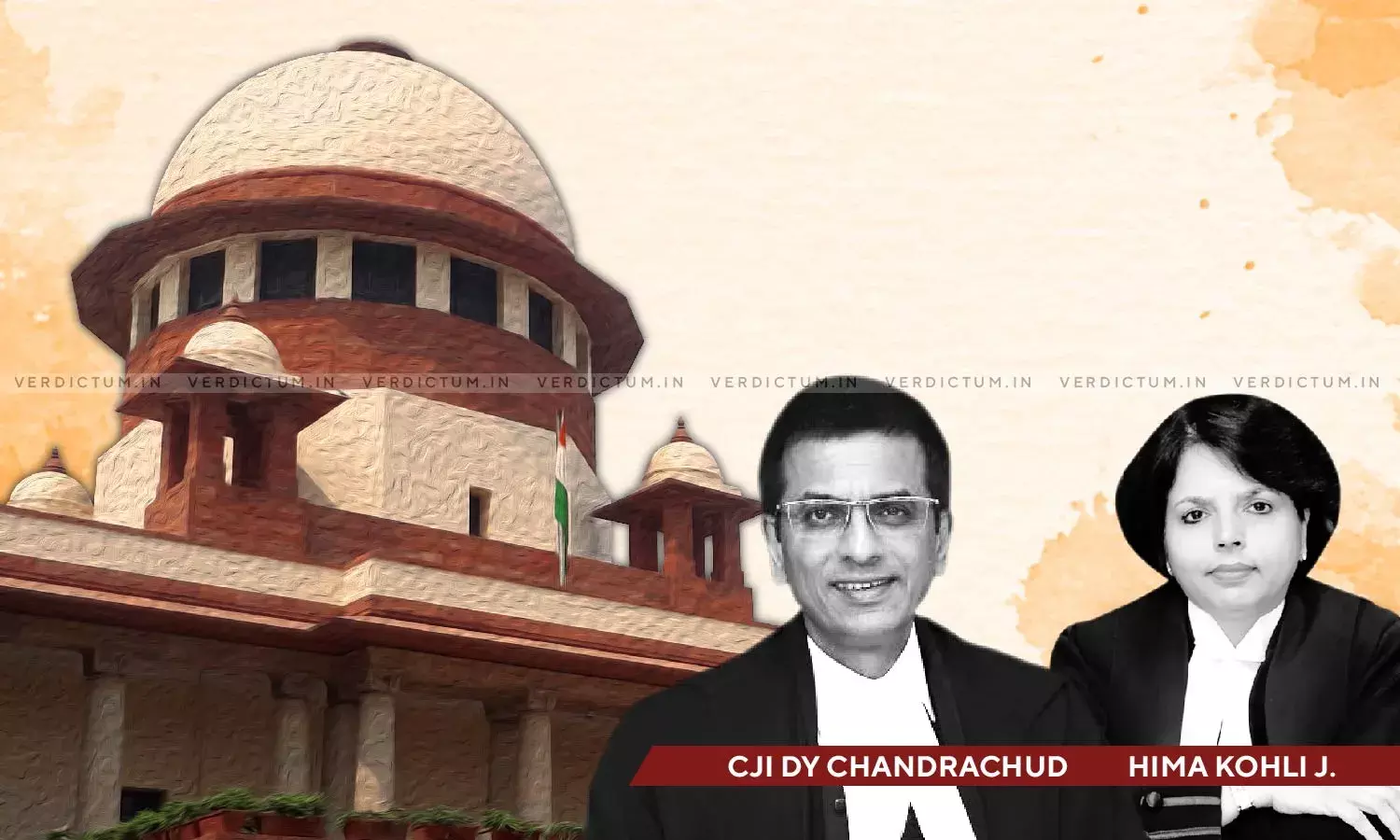Govt Contracts Should Be Awarded Through Tenders, Contracts Can Be Awarded Through Other Methods If Non-Arbitrary: SC

A Supreme Court Bench of Chief Justice DY Chandrachud and Justice Hima Kohli has observed that government contracts should be awarded by a transparent process like inviting tenders. The Court further added that in situations which warrant a departure from the precept of inviting tenders or conducting public auctions, the departure must not be unreasonable or discriminatory.
"This Court has consistently held that government contracts must be awarded by a transparent process. The process of inviting tenders ensures a level playing field for competing entities. While there may be situations which warrant a departure from the precept of inviting tenders or conducting public auctions, the departure must not be unreasonable or discriminatory.", the Court held.
In this case, Kerala Ayurvedic Co-operative Society Limited had instituted proceedings before the Allahabad High Court to challenge an order for the purchase of Ayurvedic medicines issued by the State of Uttar Pradesh in favour of Indian Medicines Pharmaceutical Corporation Limited.
The High Court allowed the petition and directed that the State of Uttar Pradesh must purchase Ayurvedic medicines by adopting a transparent process after inviting tenders.
Aggrieved, the State and IMPCL approached the Supreme Court.
Counsel Naresh Kaushik appeared for the Appellant-M/S Indian Medicines Pharmaceuticals Corporation Ltd (IMPCL). Counsel Kaleeswaram Raj appeared for the Respondent-Kerala Ayurvedic Co-operative Society Limited.
The principle issue was- Whether the Appellant could have procured Ayurvedic drugs solely from IMPCL without inviting tenders, in view of paragraph 4(vi)(b) of the Operating Guidelines of the National AYUSH Mission?
Pertinently, paragraph 4(vi) provides guidelines for the procurement of Ayurvedic medicines. Paragraph 4(vi)(b) states that ‘at least’ 50 percent of the grant-in-aid must be used for procuring medicines from IMPCL or Public Sector Undertakings, pharmacies under State Governments and co-operatives.
The Appellant side had contended that since there was no involvement of "State largesse" and no disposal of state property, it was not bound to grant the contract to IMPCL through tender.
In response, the Apex Court dismissed the contention by observing that "Social welfare benefits provided by the State under the rubric of its constitutional obligations are commonly understood in the language of ‘largesse’, a term used to describe a generous donation. Terming all actions of government, ranging from social security benefits, jobs, occupational licenses, contracts and use of public resources – as government largesse results in doctrinal misconceptions. The reason is that this conflates the State’s power with duty. The Constitution recognises the pursuit of the well-being of citizens as a desirable goal. In doing this the Constitution entrusts the State with a duty to ensure the well-being of citizens. Government actions aimed at ensuring the well-being of citizens cannot be perceived through the lens of a ‘largess’. The use of such terminology belittles the sanctity of the social contract that the ‘people of India’ entered into with the State to protect and safeguard their interests."
The Court noted that it had been consistently held that government contracts must be awarded by a transparent process.
In that context, the Court noted that "Inviting tenders and conducting public auctions are considered to be preferred methods of allocation for two reasons: firstly procurement can be made at the best price; and secondly, allocation is through a transparent process. However, if the purpose of allocation by the State is not revenue maximization, the State could award contracts through other methods, provided it is non-arbitrary and meets the requirements of Article 14."
Subsequently, the Court developed two principles, which were:
(i) Government action must be just, fair and reasonable and in accordance with the principles of Article 14 of the Constitution; and
(ii) While the government can deviate from the route of tenders or public auctions for the grant of contracts, the deviation must not be discriminatory or arbitrary. The deviation from the tender route has to be justified and such a justification must comply with the requirements of Article 14.
The Court noted that "The appellant has been unable to discharge the burden placed on it by producing cogent material demonstrating that the procurement of medicines through nomination is warranted because of the existence of exceptional circumstances bearing on need for quality. The action of the appellants of procuring medicines only from IMPCL to the exclusion of the other establishments mentioned in paragraph 4(vi)(c) is arbitrary and violative of Article 14 of the Constitution."
Hence, the Bench ordered that the appellant must henceforth purchase Ayurvedic medicines only through a free and transparent procedure such as tenders.
Consequently, the appeals were dismissed.
Cause Title: M/S Indian Medicines Pharmaceuticals Corporation Ltd v. Kerala Ayurvedic Co Operative Society Ltd. & Ors.

